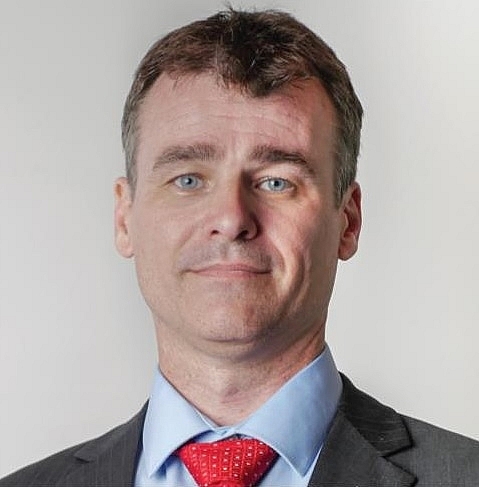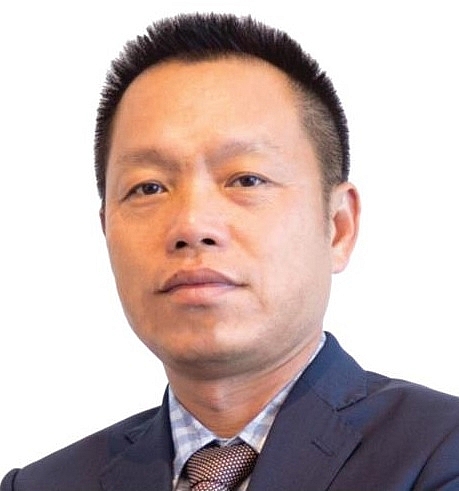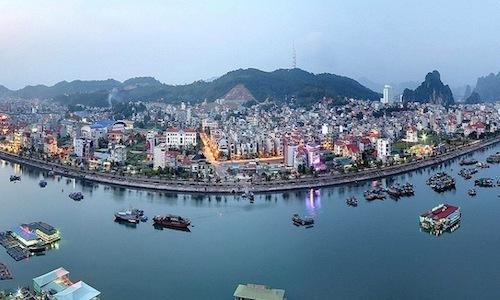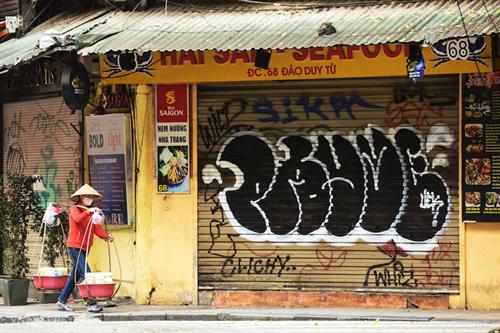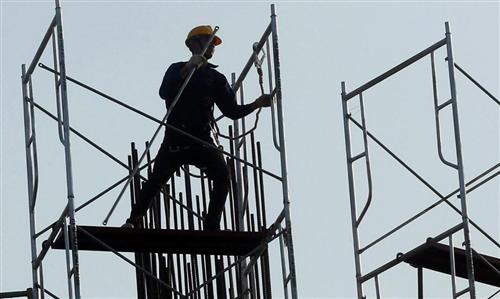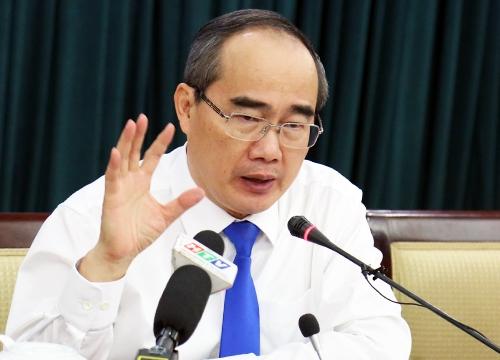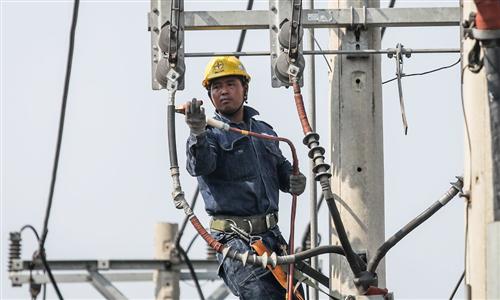Slowdown hampering sluggish divestments
Slowdown hampering sluggish divestments
A wave of challenges stemming from the pandemic and volatile market could throw a monkey wrench in the works for state divestment, but may well open the door wider for foreign investors in Vietnam.

Slowdown hampering sluggish divestments, illustration photo, source: internet
|
The unexpected events surrounding the pandemic have taken a toll on the health of equity markets and, together with other global market factors, have sparked market turbulence, causing plans for divestment and equitisation of state-owned enterprises (SOEs) to become highly uncertain.
The pandemic is likely to continue through the second quarter of 2020 with spillover effect on business activities. It has yet to consider the scenario if the global health emergency lasts until the end of the year.
Various challenges
Fresh data from the Vietnam Business White Book 2020 released last week by the General Statistics Office revealed that in 2018, SOEs secured a debt-to-equity ratio of 3.4, while the ratios of private and foreign-invested enterprises were lower, at 1.9 and 1.7, respectively.
According to a report from the Ministry of Finance last December, between 2016 and 2019 only 28 per cent of required SOEs were successfully equitised, which left 92 more SOEs to go through the process within 2020.
State divestment from existing companies by State Capital Investment Corporation (SCIC) or other ministries has been sluggish. In the first two months of 2020, SCIC was only able to divest from four companies, collecting VND79 billion ($3.37 million).
Seck Yee Chung, partner of Baker McKenzie Vietnam, told VIR that the speed of state divestment and equitisation has slowed, in particular towards the end of 2019 and towards the Lunar New Year in late January.
“The SOEs to be put on sale in 2020 include various big players in the market such as Agribank, MobiFone, Bao Viet Holding (BVH), and Bao Minh Insurance (BMI). However, the attractiveness and interest will depend on whether there is market recovery and growth, the pricing, and if potential investors are themselves well placed and persuaded to pursue opportunities,” said Chung.
As of April 16, the state divested VND400 billion ($17.07 million) worth of its stakes in eight SOEs, collecting VND962.65 billion ($41.1 million). Due to the turmoil caused by the coronavirus, state divestment pace in the first quarter of 2020 is slower than the same period last year. The number of divested SOEs accounts for 67 per cent of the year-ago period, according to a recent report by securities firm Yuanta Vietnam.
Although efforts to push state withdrawals and first-time sales of SOEs have been picking up speed over past years, the pace of divestments and equitisations remain slow.
“We could reap high proceeds in some divestment cases, but we held auctions several times to sell the state capital in 40 businesses, with disappointing results at every turn,” explained Nguyen Duc Chi, chairman of SCIC.
Some analysts believe the main reason lies in the lack of a thorough evaluation process and reasonable minimum offer price. For example, as of April 22, SCIC announced its ambition to divest its entire stake of 45 million shares, equal to 9 per cent, of Haiphong Thermal Power JSC with an initial value of $1.30 per share – nearly twice as high than the current market price.
Looking back, tie-up deals between Vietcombank and Singapore’s sovereign wealth fund GIC, or BIDV and South Korea’s KEB Hana Bank, were also postponed for a year due to disagreements on pricing.
Given the economic difficulties, information of enterprises – especially unlisted ones – are not updated regularly, which will hinder interest and decision-making to partake in state divestments. Furthermore, a pile of debt and thin capital would even rub salt into the wound for equitisation.
Global ratings firm Fitch Ratings noted recently that thin capital buffers are one of the weaknesses of some Vietnamese banks to comply with Basel II requirements, especially state-owned lenders such as Agribank.
On the other hand, an SOE must review and declare all land plots, prepare a plan to use such land plots in the future, and seek approval from the local authority. Some SOEs have land plots spread across the country, which complicates the process.
“The determination of minimum offer price under Decree No.32/2018/ND-CP released in March 2018 on state capital investment in enterprises is considered state-friendly and creates uncertainty around the market value of the SOE at the time of offer, which in turn creates challenges in attracting the attention of potential investors,” said Chung of Baker McKenzie.
In addition, information disclosure remains an issue at Vietnamese SOEs – partly because of differences in Vietnam’s accounting standards and the international financial reporting standards. The lack of quality information can discourage investors from inking deals with SOEs. For instance, financiers looking to invest in state-owned lender Agribank are being urged to stay their hands after its initial public offering was postponed.
Experts also cautioned the current health crisis has pushed businesses to re-evaluate their business models and strategies, manage the challenges presented in their current portfolio. Thus, firms would be more critical in assessing where and what would be their next investment opportunity.
“Meanwhile, the state might also face pressure on the offering price and as to whether it meets desired expectations. Travel restrictions or reluctance would also drag out the process, particularly where trying to attract foreign investors,” Chung added.
Silver lining
In a previous meeting with New York-based private equity firm Warburg Pincus, Deputy Prime Minister Vuong Dinh Hue stated that the Vietnamese government is mulling over approving non-voting shares – a move to encourage foreign investors to raise their ownership. The government would also reduce the stakes in state-owned banks in the forthcoming time.
Besides that, SCIC has recently confirmed its plan of divesting 85 SOEs, including VNSteel, Vinatex, and BVH, among others.
Notably, there are 27 listed companies in SCIC’s divestment proposal, including BVH, BMI, Tien Phong Plastic, FPT, and Binh Minh Plastics. SCIC is currently a major shareholder owning over 50 per cent of capital in many others on the list, for example VNSteel (94 per cent), Vietnam Plastics (66 per cent), Seaprodex (63 per cent), and A Chau Food Technology JSC (79 per cent).
Last December, Japanese insurer Sumitomo Life registered to purchase more than 41.4 million shares of BVH, which lifted Sumitomo’s ownership at BVH to 22.09 per cent. Sumitomo also said it could pour further investment into BVH down the road.
Meanwhile, French insurer AXA and Hongkong-based firm Firstland are expressing their appetite about buying more stakes of BMI. Bao Minh, in fact, has also mulled over to ease its foreign ownership cap from 49 per cent to zero. Its recent change in shareholder structure is slated to amplify the upcoming divestment plans of the firm.
With SCIC’s strong will in speeding up equitisation, BVH and BMI could catch the eyes of overseas groups that wish to hold all the aces in Vietnam’s insurance sector.
South Korean fourth-largest lender, Nonghyup Financial Group, also expressed its keen interest in Agribank. Japan’s AEON Group, meanwhile, recently disclosed intentions to jump onto Vietnam’s financial bandwagon.
“Astute investors seeking to participate in the secular growth of Vietnam, as well as manufacturers looking to de-couple from China, are still actively looking for mammoth potential in the country,” Andy Ho, managing director and chief investment officer at VinaCapital, told VIR.
|
Matthew Lourey - Managing partner, Domicile Corporate Services
The pandemic has resulted in significant impacts on all businesses in Vietnam. Domestic consumption has changed due to social distancing requirements, and export orders have decreased. However, with Vietnam being in a much stronger position than other countries thanks to successful response and prevention, foreign-invested enterprises (FIEs) in Vietnam remain optimistic about what lays ahead. As the social distancing requirements are slowly rolled back across Vietnam, businesses are looking at their future, making changes to their business model and staffing to ensure their survival. Many are experiencing significantly reduced revenues and profits – as a result, their ability to pay staff is also compromised, which will have a continued flow-through impact on the economy. From an FIE perspective, VAT and corporate income tax deferrals were welcomed, but not a significant benefit as they still need to be paid. FIEs would prefer to see tax reductions so that there is a direct benefit to taxpayers, and incentives to sustain continued employment such as personal income tax relief for staff and insurance reductions. Andreas Stoffers - Country director, Friedrich Naumann Foundation for Freedom in Hanoi
The global health crisis has affected the Vietnamese economy severely. As a German business expert, I consider the current emergency measures introduced by the Vietnamese government as sensible and prudent. The monetary policy of the State Bank of Vietnam (SBV), especially its interest rate cuts, sent an important signal to local business. At the same time, the SBV is not following the path of a disastrous zero interest rate policy as practised by the US and the EU. Other measures taken by the government are also supportive, especially for local businesses. Currently, I don’t expect many inflationary effects. However, the condition is that the government allows the measures to be limited in time and allows the markets to operate soon again. It will be important for foreign firms that Vietnam continues its open and business-friendly policy. Long-term expansion of state investment, as is indicated in the EU for example, would suppress Vietnam’s economic recovery. For local and foreign businesses, it is also great that the existing restrictions on daily life and the economy are meanwhile lifted gradually to enable the economy to recover. Luong Minh Tuan - Chairman, Dat Phuong JSC
The coronavirus outbreak is causing adverse consequences on businesses’ production and business activities. As market competition becomes increasingly tougher, we accept that our profit margins will be diminished compared to previous years and the company is focusing on money flow control in these times. This year businesses should pay due regards to ensuring financial safety and firm fundaments underpinning smooth operation in the following years. One of the solutions to rebuild the economy much talked about these days is promoting disbursement of public investment. With a hefty VND600 trillion ($2.6 billion) in undisbursed sums carrying forward from 2019 plus the amount for this year, it is a big resource of public investment. The works using public investment sources would create an impulse to push up investment in other areas in hard times after the pandemic is over. However, it is imperative now to take action towards simplifying current regulations on public investment that are deemed to be quite complex and hard to implement. |


